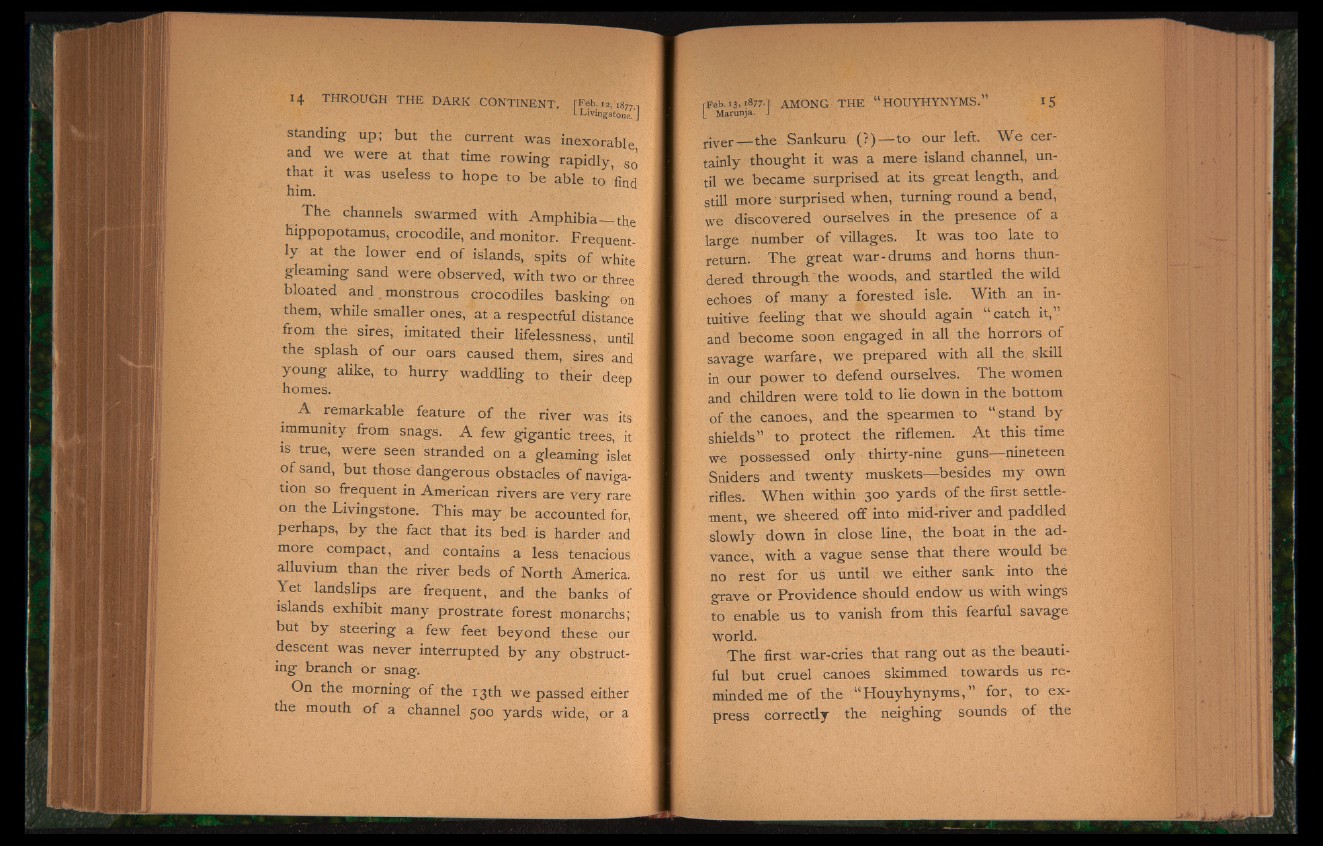
standing up; but the current was inexorable
and we were at that time rowing rapidly, so
that it was useless to hope to be able to ’find
him.
The channels swarmed with Amphibia— the
hippopotamus, crocodile, and monitor. Frequently
at the lower end of islands, spits of white
gleaming sand were observed, with two or three
bloated and _ monstrous crocodiles basking on
them, while smaller ones, at a respectful distance
from the sires, imitated their lifelessness, until
the splash of our oars caused them, sires and
young alike, to hurry waddling to their deep
homes.
A remarkable feature of the river was its
immunity from snags. A few gigantic trees, it
is true, were seen stranded on a gleaming Islet
of sand, but those dangerous obstacles of navigation
so frequent in American rivers are very rare
on the Livingstone. This may be accounted for,
perhaps, by the fact that its bed is harder and
more compact, and contains a less tenacious
alluvium than the river beds of North America.
Yet landslips are frequent, and the banks of
islands exhibit many prostrate forest monarchs;
but by steering a few feet beyond these our
descent was never interrupted by any obstructing
branch or snag.
On the morning of the 13th we passed either
the mouth of a channel 500 yards wide, or a
rFeb. 13,18770 AMONG THE “ HOUYHYNYMS.” 1 5
L Marunja. J
r jv e r— the Sankuru (?) — to our left. We certainly
thought it was a mere island channel, until
we became surprised at its great length, anci
still mòre surprised when, turning round a bend,
we discovered ourselves in the presence of a
large numbér of villages. It was too late to
return. The great war-drums and horns thundered
through the woods, and startled the wild
echoes of many a forested isle. With an intuitive
feeling that we should again catch it,
and become soon engaged in all the horrors of
savage warfare, we prepared with all the skill
in our power to defend ourselves. The women
and children were told to lie down in the bottom
of the canoes, and the spearmen to “ stand by
shields” to protect the riflemen. At this time
we possessed only thirty-nine guns— nineteen
Sniders and twenty muskets—besides my own
rifles. When within 300 yards of the first settlement,
we sheered o f f into mid-river and paddled
slowly down in close line, the boat in the advance,
with a vague sense that there would be
no rest for us until we either sank into thè
grave or Providence should endow us with wings
to enable us to vanish from this fearful savage
world.
The first war-cries that rang out as the beautiful
but cruel canoes skimmed towards us reminded
me of the “Houyhynyms,” for, to express
correctly the neighing sounds of the